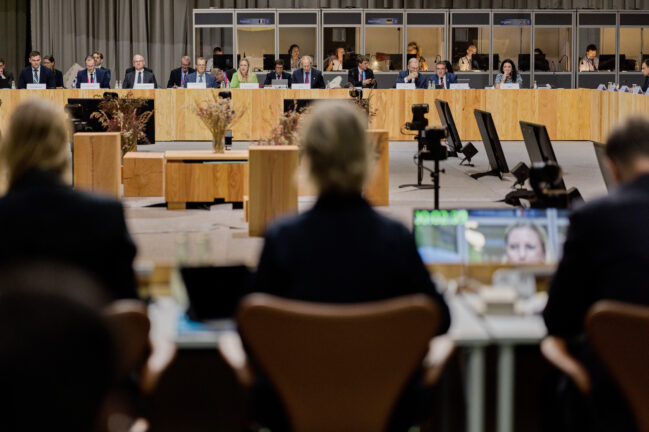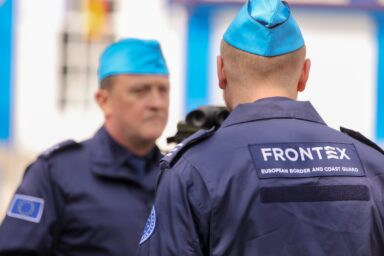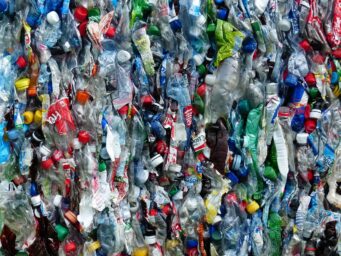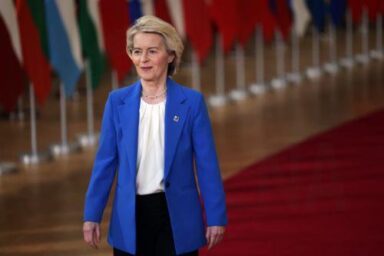EU finance ministers met for a Eurogroup and later full ECOFIN meeting in Copenhagen on Friday to discuss ways to boost competitiveness and simplify financial rules amid rising global economic pressures. The informal talks, hosted by the Danish Presidency, focused on structural reforms, regulatory burdens, and the impact of geopolitics on the EU economy.
The ECB President Christine Lagarde, European Commissioner for Economy Valdis Dombrovskis, Commission Vice-President for Economy Paolo Gentiloni and the Eurogroup President Paschal Donohoe also attended. In a doorstep interview, Dombrovskis outlined some of the issues on the agenda ahead of the meeting Friday, including so-called reparation loans for Ukraine.
“What the Commission is proposing is a loan provided to Ukraine by using cash balances of immobilised Russian assets without touching, in a sense, Russia’s claim to those assets.”
The digital euro
The issue would come again at post meeting briefing but only one item of many.
This included the current economic condition of the eurozone, which Eurogroup President Paschal Donohoe described as “resilient” despite global uncertainty or turbulence. He explained that “at the heart of growth” was the “continued strong performance of labour markets all over the euro area.” While further improvement was still needed, he said the news was positive and provided solid ground for adopting the digital euro. Much of the discussion, he noted, was to identify a common basis for progress on issuing the digital version.
You might be interested
“I want to underline the view that the digital future of the euro is the essential part of its future,” he said.
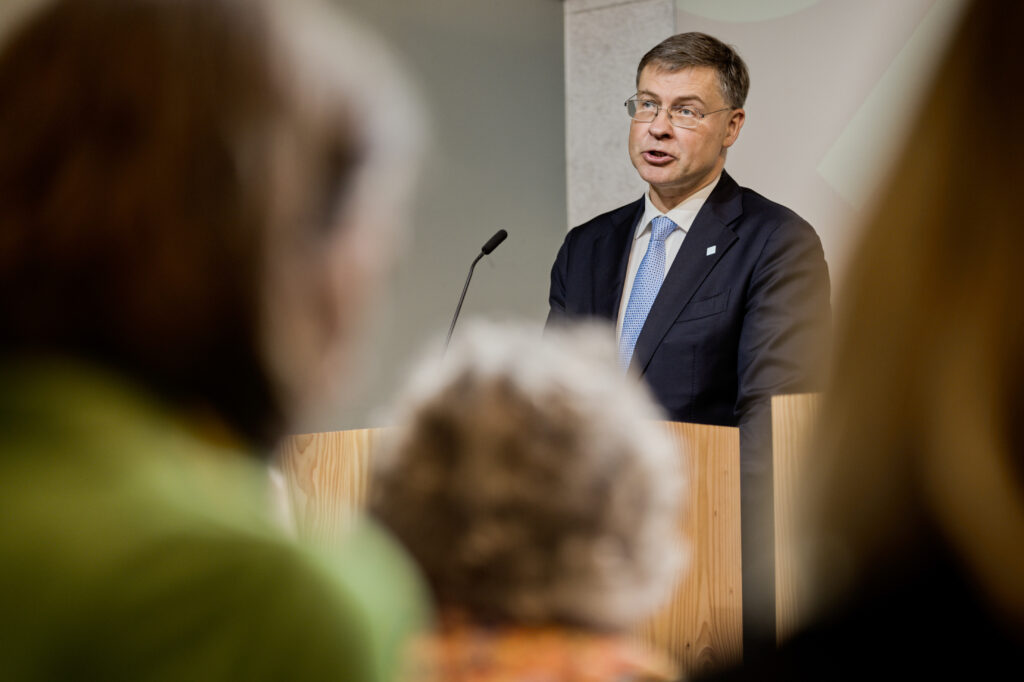
It’s only right that Russia pay reparations for the war it started. – Commissioner for Economy Valdis Dombrovskis
Slight slowdown expected
Commissioner Dombrovskis said the economy grew faster than expected in the first half of the year, as investment and exports had exceeded forecasts. At the same time, growth momentum was expected to slow — but not reverse — in the second half, due to slower trade growth, greater uncertainty and geopolitical turbulence. The growth outlook, he added, was somewhat weaker than had been anticipated, though the economic situation remained sound.
Turning to competitiveness, he said some recommendations in the Draghi report had been turned into reality, but more action was needed to maximise impact. He also called the ceiling limits agreement on the digital euro “a breakthrough”.
Pressuring Russia
On sanctions, Commissioner Dombrovskis turned again to the idea of stepping up pressure on Russia through a reparations loan based on held Russian assets. How to use €170bn to help Ukraine in the face of continuing attacks remains a much-debated question, given it is fraught with legal issues. He said steps were needed in the spirit of the 19th sanctions package adopted and made public on Friday, further weakening Russia’s “already weakened war economy”.
He affirmed that the loan would be repaid only if Russia eventually paid reparations for the war it launched. “So, basically frontloading the reparations,” he said, continuing, “It’s only right that Russia pay reparations for the war it started.” He added that ministers would now focus on technical details, remaining concerns and legal questions, in order to build a fiscal and legally sound framework that would also be scalable at the G7 level.
Just a sliver
Many other issues were raised, many flowing from the recent State of the Union address and Draghi report and need for the EU to move a great deal faster. On a day when the Commission revealed information about its 19th sanctions package (and when Russian fighter jets again entered foreign airspace) it nevertheless seemed that increased economic pressure on Russia was very much at the forefront of participants’ minds.
